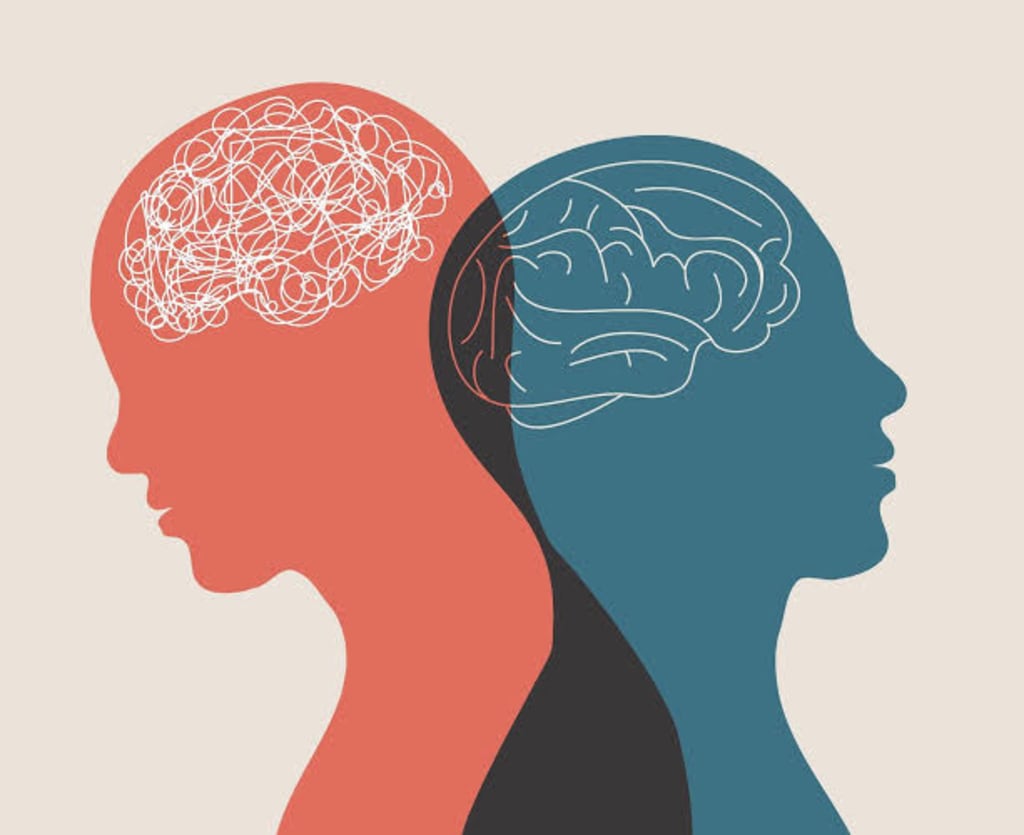Importance of mental health
Mental Health

Mental health is an essential aspect of overall health and well-being. It refers to a state of psychological and emotional well-being, in which an individual is able to handle the stresses and challenges of daily life, function effectively in their relationships, and contribute to their community.
Here are some reasons why mental health is so important:
Mental health affects physical health: Research has shown that mental health problems can have negative effects on physical health. For example, people with depression have been shown to have a higher risk of developing heart disease, while people with anxiety disorders may experience gastrointestinal problems. Conversely, people with good mental health are more likely to take care of their physical health and engage in healthy behaviors like exercise and eating well.
Mental health affects relationships: Good mental health is crucial for maintaining healthy relationships with family, friends, and romantic partners. Mental health problems can cause conflicts, misunderstandings, and alienation from loved ones, while good mental health can foster closer connections and more fulfilling relationships.
Mental health affects work and productivity: Mental health problems can have a significant impact on an individual's ability to work and be productive. Conditions like depression, anxiety, and substance abuse can make it difficult to concentrate, make decisions, and complete tasks, leading to decreased performance and increased absenteeism.
Mental health affects overall quality of life: Good mental health is essential for overall well-being and a satisfying life. It allows individuals to enjoy life, pursue their goals and interests, and feel a sense of purpose and fulfillment.
Mental health is often stigmatized: Despite the importance of mental health, it is still often stigmatized and misunderstood. People with mental health problems may face discrimination, prejudice, and social exclusion, which can exacerbate their condition and make it more difficult to seek help.
Here are some examples of how mental health can impact various aspects of an individual's life:
Physical health: Anxiety and stress can cause headaches, muscle tension, and other physical symptoms. Depression can cause changes in appetite and sleep patterns, which can lead to weight gain or loss. Substance abuse can damage vital organs and lead to long-term health problems.
Relationships: Mental health problems can make it difficult for individuals to connect with others, causing them to withdraw or become isolated. This can strain relationships with family, friends, and romantic partners. On the other hand, good mental health can improve communication, empathy, and trust in relationships.
Work and productivity: Mental health problems can cause individuals to struggle with concentration, decision-making, and problem-solving, which can lead to decreased productivity and job performance. Good mental health, on the other hand, can boost creativity, motivation, and focus.
Overall quality of life: Mental health problems can reduce an individual's enjoyment of life, making it difficult to engage in activities they once enjoyed. Conversely, good mental health can increase feelings of happiness, satisfaction, and well-being.
Stigma: Stigma and discrimination surrounding mental health can make it difficult for individuals to seek help and receive the support they need. This can exacerbate mental health problems and cause individuals to feel isolated and alone.
Improving mental health is a complex process that can involve a range of strategies and approaches. Here are some general ways to promote better mental health:
Practice self-care: Self-care includes activities such as getting enough sleep, eating a healthy diet, exercising regularly, practicing relaxation techniques like meditation or yoga, and engaging in hobbies or other enjoyable activities.
Build a strong support network: Having people in your life who you can talk to and rely on for support can be a valuable resource for improving mental health.
Seek professional help: If you're struggling with mental health issues, it's important to seek the help of a qualified mental health professional. This might include a therapist, psychologist, or psychiatrist who can provide counseling, medication, or other treatments.
Practice good stress management: Chronic stress can take a toll on mental health, so it's important to develop healthy coping strategies for managing stress. This might include exercise, mindfulness techniques, or talking to a friend or therapist.
Avoid substance abuse: Substance abuse can have a negative impact on mental health, so it's important to avoid using drugs or alcohol to cope with stress or other challenges.
Stay socially engaged: Social isolation can contribute to poor mental health, so it's important to stay socially engaged by participating in activities or joining groups that interest you.
In conclusion, mental health is a crucial component of overall health and well-being. Good mental health allows individuals to live fulfilling lives, maintain healthy relationships, and be productive members of their communities. It is important to prioritise mental health and seek help if needed, and to work towards reducing the stigma and misunderstanding surrounding mental health problems.
About the Creator
haris subhani
Throughout my life, I continued to maintain a balance between my extracurriculars and studies. Therefore, I participated actively in numerous competitions. I played nationals of football and cricket. Sports is my passion and I love to play





Comments
There are no comments for this story
Be the first to respond and start the conversation.